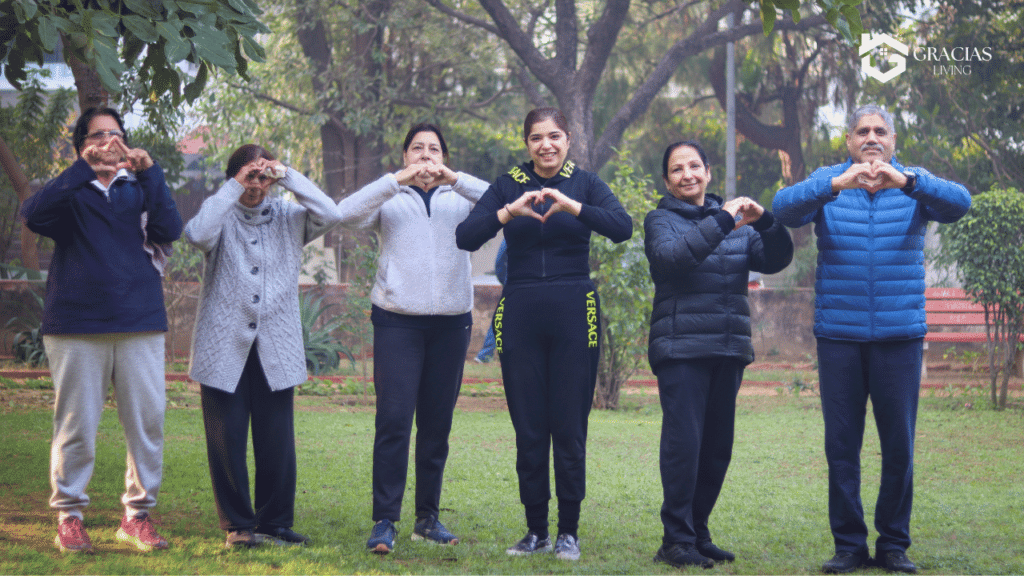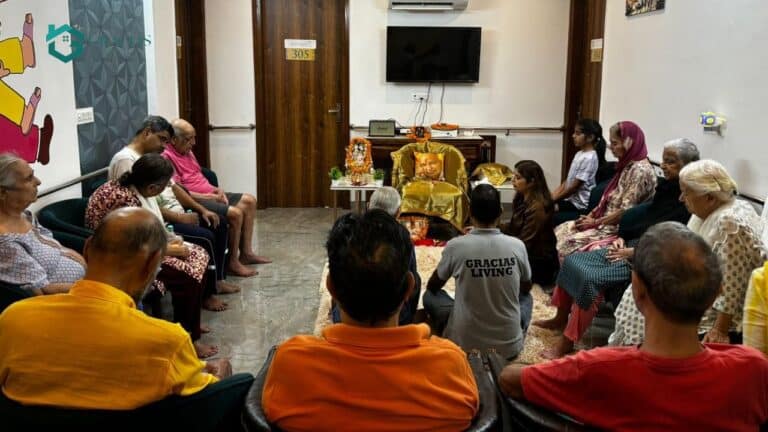Quick Summary of the article:
- In Assisted Living, Elders get support in daily activities such as dressing and grooming to medication management, which empowers them to live independently with the benefits of Assisted Living.
- Social engagement and group activities address the issue of Social isolation among elderly and they develop meaningful relations here.
- Such places recognize the importance of maintaining a healthy diet for overall well-being. Therefore, they offer nutritious meals tailored to individual dietary needs.
- Assisted Living empowers seniors to take an active role in their health, reinforcing the idea that aging does not mean sacrificing independence.
- These places contribute significantly to elder care by encouraging independence and a well-lived life.
Assisted living has become an important solution for seniors who wish to maintain their independence while receiving assistance and support.
With advancing age, one’s autonomy can be jeopardized by changing life circumstances, health, and capacity, which makes it imperative to prioritize independence and quality of life.
These community facilities are designed to provide seniors with the assistance they need while empowering their independence and enhancing their overall well-being.
These facilities are not just places for seniors to live; they are dynamic environments that are warm and inviting, designed to create a home-like atmosphere that fosters a sense of belonging and security.
So, let’s delve into how assisted living plays a vital role in fostering independence in elderly care.

Assisted living: Key to empower independence
1. Personalized services:
One of the most significant advantages of assisted living is the provision of personalized services.
Unlike a one-size-fits-all approach, these communities assess individual needs and provide support accordingly.
From daily activities such as dressing and grooming to medication management, seniors receive personalized care that enables them to maintain their independence while ensuring their well-being.
2. Social engagement:
Social isolation is one of the most significant challenges faced by the elderly, and assisted living addresses this issue head-on by fostering social engagement.
Within the community, residents are encouraged to participate in various activities and events, from group outings to game nights. Consequently, assisted living appeared as a ray of hope that combats loneliness and provides a community in which new friendships can be formed.
3. Health and wellbeing:
Assisted living recognizes the importance of maintaining a healthy diet for overall well-being. Therefore, they offer nutritious meals tailored to individual dietary needs.
Community dining not only ensures that residents receive proper nutrition but also promotes a sense of independence. The ability to choose meals and dine in a social setting contributes to a holistic approach to health and autonomy.
4. Safety with dignity:
While the goal is to empower independence, assisted living communities also act as safety nets with a focus on preserving dignity.
Emergency response systems, accessible amenities, and trained staff provide a secure environment without compromising residents’ autonomy. This delicate balance allows seniors to navigate daily life confidently, knowing there’s support when needed.
5. Holistic wellness programs:
Assisted living extends beyond physical care; it embraces holistic wellness. Regular exercise programs, wellness checks, and mental health initiatives contribute to a well-rounded approach to senior care.
These programs empower seniors to take an active role in their health, reinforcing the idea that aging does not mean sacrificing independence.
A life well lived in assisted living!
Undeniably, assisted living has emerged as a viable solution for the elderly, offering a supportive and engaging community that promotes a life well lived.
By addressing the multifaceted needs of seniors, from physical care to social well-being, these communities champion independence.
As a result, assisted living undoubtedly contributes significantly to elder care by encouraging independence and a well-lived life.




